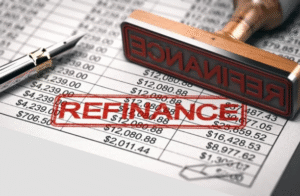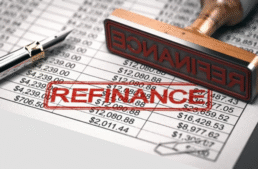How HOA Budgets Impact Condo Loan Approval

Buying a condo can be a great way to own property while enjoying shared amenities like pools, gyms, and common area maintenance. However, one factor many buyers overlook is the Homeowners Association (HOA) budget. In fact, your HOA’s financial health can significantly influence whether lenders approve your condo loan.
If you’re considering purchasing a condo in Las Vegas, understanding how HOA budgets affect financing can help you avoid surprises and make your purchase smoother.
What Is an HOA Budget?
An HOA budget is essentially the financial plan for a condominium community. It outlines how much money the HOA expects to collect from homeowners in fees and how that money will be spent throughout the year.
Typical expenses in an HOA budget include:
- Maintenance of common areas (landscaping, elevators, hallways)
- Utilities for shared spaces
- Insurance for the building
- Reserve funds for future repairs
- Administrative costs
A well-managed budget ensures the condo remains safe, attractive, and financially stable.
Why Lenders Care About HOA Budgets
When you apply for a condo loan, lenders don’t just look at your credit score or income—they also review the HOA’s financials.
Here’s why:
- Financial Stability of the Building: A healthy budget and sufficient reserves indicate the HOA can maintain the property over time, reducing the risk of declining property values.
- Risk of Delinquency: If many owners are behind on HOA fees, the building may face financial stress, which could impact your property’s value.
- Insurance Coverage: Lenders want to see that the HOA has proper insurance in place. Poorly funded budgets can mean inadequate coverage, which is a red flag.
In short, lenders want assurance that the condo building is financially sound before approving a loan.
Key HOA Budget Elements Lenders Review
When evaluating a condo for loan approval, lenders typically examine several key aspects of the HOA budget:
1. Reserve Funds
Reserve funds are savings set aside for major repairs or replacements, such as roof repairs, plumbing updates, or elevator maintenance.
Lenders typically look for:
- At least 10% of the annual budget in reserves
- A clear plan for how reserve funds will be used
- Evidence that reserves are being properly maintained
A building with low or poorly managed reserves may be seen as risky.
2. Delinquency Rates
High delinquency rates (owners behind on HOA fees) are a red flag. Lenders worry that if many owners fail to pay, the HOA may not be able to cover essential expenses, which could impact the property value of your condo.
Most lenders prefer buildings with less than 15% delinquency rates, though lower is always better.
3. Budget Allocation
Lenders review how the HOA allocates funds. They want to see:
- Adequate spending on maintenance and repairs
- Sufficient insurance coverage
- Reasonable administrative costs
If the HOA is underfunding maintenance or skimping on insurance, lenders may hesitate to approve financing.
4. Special Assessments
Special assessments are additional charges levied on condo owners to cover unexpected expenses or major projects.
While occasional assessments are normal, frequent or large assessments may concern lenders, as they increase the financial burden on owners and may indicate poor planning.
How HOA Budget Issues Can Affect Your Loan
If an HOA’s budget doesn’t meet lender standards, your loan may be delayed or denied. Some common issues include:
- Insufficient reserves – may require a higher down payment or alternative financing
- High delinquency rates – could make the building ineligible for FHA, VA, or conventional loans
- Pending litigation – lawsuits involving the HOA can block loan approval
This is why reviewing HOA financials before making an offer is critical for condo buyers.
Tips for Buyers: Ensuring Smooth Loan Approval
To improve your chances of loan approval and avoid surprises, follow these tips:
- Request HOA Documents Early
Ask for the HOA’s budget, reserve study, and financial statements before writing an offer. - Work With an Experienced Local Agent
A real estate agent familiar with Las Vegas condos can help you identify buildings with lender-friendly budgets and policies. - Budget for HOA Fees
Remember that monthly HOA fees are part of your mortgage calculation. High fees can affect your debt-to-income ratio, so include them in your financial planning. - Ask About Special Assessments
Check if any upcoming assessments are planned. Unexpected costs could impact your affordability. - Consider Lender-Approved Buildings
Some lenders maintain lists of approved condo associations. Buying in an approved building can simplify financing.
The Derek Parent Team specializes in helping buyers navigate condo financing in Las Vegas. From reviewing HOA documents to connecting you with lenders familiar with high-rise and condo rules, a knowledgeable team can make the process much smoother. Learn more at https://derekparentteam.com.
Questions to Ask About HOA Budgets
Before committing to a condo purchase, consider asking these questions:
- How much is in the reserve fund, and what is it used for?
- What percentage of owners are delinquent on fees?
- Have there been any special assessments in the last 5 years?
- What is the building’s insurance coverage?
- Are there any pending lawsuits against the HOA?
Getting clear answers upfront can save you stress and prevent loan delays.
Final Thoughts
Your condo’s HOA budget may not be the first thing you think about when buying a home, but lenders treat it as a crucial factor. A well-funded, well-managed HOA indicates a stable, well-maintained building—and a smoother loan approval process for you.
If you’re considering buying a condo in Las Vegas, a trusted local real estate team can guide you through HOA reviews, lender requirements, and the entire buying process. The Derek Parent Team has the expertise to help you find a condo that meets both your lifestyle and financing needs. Visit our website to start your condo search today.
Buying a condo is an exciting step—make sure your HOA’s finances support your dream rather than complicate it.
VA Loans in Las Vegas: Benefits Most Veterans Don’t Use

For veterans and active-duty service members, buying a home can feel overwhelming, especially in competitive housing markets like Las Vegas. Fortunately, VA loans provide unique benefits designed to make homeownership more accessible and affordable. However, many veterans don’t take full advantage of these benefits, missing opportunities to save money and build wealth.
In this article, we’ll explore VA loans in Las Vegas, highlight lesser-known benefits, and show how veterans can maximize these advantages to achieve their homeownership goals.
What is a VA Loan?
A VA (Veterans Affairs) loan is a mortgage program backed by the U.S. Department of Veterans Affairs. It is specifically designed to help veterans, active-duty service members, and eligible surviving spouses buy or refinance a home.
Unlike conventional loans, VA loans offer several unique advantages:
- No down payment required
- No private mortgage insurance (PMI)
- Competitive interest rates
- Flexible credit requirements
- Options for refinancing existing mortgages
These features make VA loans one of the most veteran-friendly mortgage programs available.
Common Benefits Most Veterans Know
Many veterans are aware of the core benefits of VA loans:
- Zero Down Payment – Unlike conventional mortgages, veterans can purchase a home with no money down, making homeownership more attainable.
- No PMI Requirement – Conventional loans typically require private mortgage insurance if the down payment is below 20%, but VA loans eliminate this cost.
- Competitive Interest Rates – VA loans often have lower interest rates than conventional or FHA loans, reducing long-term borrowing costs.
- Flexible Credit Requirements – Veterans with moderate credit scores may still qualify for VA loans, expanding access to homeownership.
While these benefits are well-known, many veterans are unaware of additional advantages that can save money and simplify the mortgage process.
Lesser-Known VA Loan Benefits
1. Funding Fee Exemptions
VA loans usually include a funding fee, which is a one-time payment to help sustain the program. However, veterans with service-connected disabilities or certain other exemptions may avoid this fee entirely, potentially saving thousands of dollars.
Example:
A first-time VA homebuyer with a $400,000 home might pay a funding fee of up to $8,000. Exemptions remove this cost completely.
2. Reusable VA Loan Benefits
Unlike some programs, VA loan benefits can be used multiple times. Veterans who sell a previous home or refinance can use their VA entitlement again, making it easier to move, upgrade, or invest in a new property.
Tip: This is especially useful in Las Vegas, where the real estate market can be competitive, allowing veterans to take advantage of changing property values.
3. VA Interest Rate Reduction Refinance Loan (IRRRL)
The VA IRRRL, also known as a VA Streamline Refinance, allows veterans to refinance an existing VA loan to reduce their interest rate or monthly payments, with minimal paperwork and no appraisal required.
Benefits Include:
- Reduced interest rate
- Lower monthly payments
- Streamlined approval process
- Minimal out-of-pocket costs
This option is often overlooked but can provide significant long-term savings.
4. Seller Concessions
VA loans allow sellers to pay certain closing costs on behalf of the buyer. These concessions can include:
- Prepaid taxes and insurance
- VA funding fee (if applicable)
- Closing costs not typically paid by the buyer
In Las Vegas, where competitive markets often push buyers to make large down payments, these concessions can make a big difference.
5. Protection Against Foreclosure
VA loans include special protections for veterans, including assistance with loan modifications and foreclosure prevention in case of financial hardship.
Tip: This safety net provides peace of mind, especially for veterans navigating changing employment or financial situations.
How VA Loans Benefit Veterans in Las Vegas
Las Vegas is a dynamic housing market with rising home prices and high demand. VA loans provide veterans with:
- Lower upfront costs – No down payment helps veterans enter the market sooner.
- Competitive financing – Lower interest rates reduce long-term payments, which is crucial in a city with appreciating home values.
- Flexibility – Reusable benefits and refinancing options allow veterans to adapt to changing personal or market circumstances.
- Equity-building opportunities – Veterans can purchase homes without PMI, allowing them to build equity faster.
Tips for Maximizing VA Loan Benefits
- Check Your VA Eligibility
Ensure you understand your entitlement, including whether you are exempt from the funding fee. - Use Funding Fee Exemptions Wisely
If eligible, avoid paying unnecessary fees to maximize upfront savings. - Consider Streamline Refinancing
Even if you already have a VA loan, refinancing with IRRRL can reduce your interest rate and improve cash flow. - Leverage Seller Concessions
Work with knowledgeable real estate agents to negotiate concessions that reduce your closing costs. - Consult VA Loan Experts
Experienced professionals, like the team atderekparentteam.com, can help veterans navigate the application process, maximize benefits, and secure the best financing options.
Conclusion
VA loans are one of the most advantageous mortgage programs available for veterans and active-duty service members. While most veterans understand the basic benefits like zero down payment and no PMI, many don’t take full advantage of funding fee exemptions, reusable entitlement, IRRRL refinancing, seller concessions, and foreclosure protections.
By understanding these benefits and working with experienced advisors, veterans in Las Vegas can save money, improve cash flow, and build long-term wealth through homeownership.
For guidance on VA loans and how to maximize your benefits, visit The Parent Team. Our team specializes in helping veterans navigate the Las Vegas real estate market with confidence and success.
First-Time Homebuyer Guide to Las Vegas: Step-by-Step

Buying your first home is exciting—but it can also feel overwhelming, especially in a fast-growing market like Las Vegas. Between financing options, neighborhoods, and timing the market, it’s easy to feel unsure about where to start.
The good news? The process becomes much easier when you break it down step by step. This guide walks you through exactly what first-time homebuyers in Las Vegas need to know, from preparation to closing day.
Step 1: Understand What You Can Afford
Before browsing listings, you need a clear picture of your budget. This goes beyond just a purchase price—it includes your monthly comfort level.
Key factors include:
- Income and job stability
- Monthly debts (car loans, student loans, credit cards)
- Down payment savings
- Credit score
- Ongoing costs like HOA fees, taxes, and insurance
A lender can help you determine a realistic payment range that fits your lifestyle—not just the maximum you qualify for.
Step 2: Get Pre-Approved (Not Just Pre-Qualified)
A full mortgage pre-approvalis one of the most important steps in the process. It shows sellers that you’re serious and financially ready.
Pre-approval involves:
- Verifying income and employment
- Reviewing credit
- Confirming assets and down payment funds
In competitive Las Vegas neighborhoods, a strong pre-approval can make the difference between winning and losing a home.
Step 3: Explore First-Time Buyer Loan Options
Many first-time buyers are surprised by how many loan programs are available.
Common options include:
- Conventional loans(as low as 3% down)
- FHA loans(more flexible credit guidelines)
- VA loans(0% down for eligible veterans)
- Down payment assistance programs
The right loan depends on your credit, income, and long-term plans. A local lender can help you compare options side by side.
Step 4: Choose the Right Neighborhood
Las Vegas offers a wide range of communities, each with its own lifestyle and price points.
Popular areas for first-time buyers include:
- Henderson
- North Las Vegas
- Southwest Las Vegas
- Northwest Las Vegas
- Emerging master-planned communities
When choosing a location, consider:
- Commute time
- Future growth
- HOA fees
- School zones
- Long-term resale value
Step 5: Start House Hunting with a Strategy
Once pre-approved, work with a knowledgeable real estate agent to begin touring homes. In today’s market, having a plan matters more than rushing.
Smart strategies include:
- Prioritizing needs vs. wants
- Being flexible on cosmetic updates
- Evaluating total monthly cost, not just price
- Considering new construction incentives
First-time buyers often find strong value in homes that need minor updates or offer seller credits.
Step 6: Make a Competitive Offer
Your offer should reflect both the market and your financial comfort level.
A strong offer may include:
- Competitive pricing
- Flexible closing timelines
- Seller-paid closing cost requests
- Reasonable inspection terms
Your lender and agent should work together to structure an offer that protects you while remaining attractive to the seller.
Step 7: Complete Inspections and Appraisal
Once under contract, the home goes through inspections and appraisal.
This step helps:
- Identify potential repairs
- Confirm the home’s value
- Protect you from overpaying
If issues arise, your agent can negotiate repairs or credits on your behalf.
Step 8: Final Loan Approval and Closing
During underwriting, your lender finalizes the loan and clears any remaining conditions.
You’ll:
- Review final loan numbers
- Sign closing documents
- Receive your keys
Most first-time buyers are surprised by how smooth this stage is when everything has been prepared properly upfront.
Step 9: Move In and Start Building Equity
Once you close, you’re no longer renting—you’re building equity and stability. Over time, homeownership can help you:
- Build wealth
- Lock in housing costs
- Improve financial security
- Create long-term flexibility
Your first home is often the foundation for future opportunities.
Final Thoughts
Buying your first home in Las Vegas doesn’t have to be stressful. With the right preparation, guidance, and strategy, the process becomes clear and manageable—step by step.
If you’re thinking about buying your first home or want a personalized plan, connect with The Derek Parent Team. We’ll help you understand your options, secure the right loan, and move forward with confidence.
Pre-Approval vs. Pre-Qualification: Why It Matters More Than You Think

If you’re planning to buy a home, you’ve probably heard the terms pre-qualificationand pre-approvalused interchangeably. While they sound similar, they are not the same—and confusing the two can cost you time, money, or even the home you want.
In a competitive market like Las Vegas, understanding the difference matters more than you might expect.
What Is Pre-Qualification?
Pre-qualification is a quick estimateof what you might be able to afford. It’s typically based on information you self-report, such as:
- Income
- Debts
- Assets
- Credit score range
In most cases:
- No documents are verified
- Credit may not be pulled
- Numbers are estimates only
When pre-qualification is useful:
- Early planning stages
- General budgeting
- Getting a rough price range
Where it falls short:
Pre-qualification does notguarantee loan approval. Because nothing is verified, numbers can change dramatically once documents are reviewed.
What Is Pre-Approval?
Pre-approval is a much stronger step. It means a lender has reviewed and verified your financial information.
A full pre-approval includes:
- Credit pull
- Income verification
- Asset review
- Employment confirmation
- Debt-to-income analysis
In many cases, a pre-approval is underwritten upfront, which makes it even stronger.
What pre-approval tells sellers:
- You’re financially vetted
- Your numbers are accurate
- Your loan is likely to close
- You’re a serious buyer
In Las Vegas, sellers and agents strongly prefer offers backed by full pre-approval.
Why the Difference Matters in Real Life
Here’s where buyers run into trouble.
Many buyers shop with only a pre-qualification, find a home, make an offer—and then discover:
- They qualify for less than expected
- HOA fees weren’t accounted for
- Credit issues surface
- Income can’t be used as planned
- Loan terms change
This can lead to:
- Renegotiations
- Delayed closings
- Lost earnest money
- Canceled contracts
A pre-approval helps prevent these surprises.
How Pre-Approval Strengthens Your Offer
In competitive markets, sellers often choose the cleanest offer, not just the highest price.
A strong pre-approval can:
- Win against higher-priced offers
- Reduce seller hesitation
- Speed up closing timelines
- Lower the risk of appraisal or financing issues
In some cases, sellers won’t even respond to offers that aren’t fully pre-approved.
Why Pre-Approval Is Critical in Las Vegas
Las Vegas has unique factors that make pre-approval especially important:
- HOA-heavy communities
- Condos and high-rises with financing restrictions
- New construction incentives tied to lender strength
- Out-of-state buyer competition
A lender familiar with Las Vegas can:
- Account for HOA dues accurately
- Confirm condo or high-rise eligibility
- Structure loans around builder incentives
- Avoid last-minute financing issues
This local expertise matters just as much as the pre-approval itself.
Pre-Approval Doesn’t Lock You In
One common myth is that pre-approval commits you to a lender. It doesn’t.
You can:
- Compare lenders
- Update pre-approvals
- Adjust loan strategies
- Re-run numbers as homes change
The goal of pre-approval is clarity—not commitment.
How Long Is a Pre-Approval Good For?
Most pre-approvals are valid for 60–90 days, depending on:
- Credit expiration
- Income changes
- Market conditions
If you don’t buy within that window, updating a pre-approval is usually quick and easy—especially if your financial situation hasn’t changed.
The Smart Way to Start the Homebuying Process
Instead of guessing or relying on online calculators, the smartest first step is a real conversation.
At The Parent Team, we help buyers:
- Understand true affordability
- Compare loan options
- Factor in HOAs and taxes
- Strengthen offers with solid pre-approvals
- Avoid surprises after going under contract
That preparation often makes the entire buying process smoother and far less stressful.
Final Thoughts
Pre-qualification is a starting point—but pre-approval is what actually moves deals forward. The difference can determine whether your offer gets accepted, how smoothly your loan closes, and how confident you feel throughout the process.
If you’re thinking about buying a home and want to be taken seriously from day one, a full pre-approval is the right move.
To get started or to review your options, connect with The Derek Parent Team. We’ll help you move forward with clarity, confidence, and a competitive edge.
2026 Las Vegas Housing Market Update: Why Strategy Matters More Than Rates

The Las Vegas housing market is entering a phase that many buyers and homeowners haven’t seen in several years — balance and stability. After cycles of rapid appreciation, intense bidding wars, and unpredictable rate swings, the current environment is shifting toward something healthier: a market where preparation and strategy matter more than speed and guesswork.
For many people, this is actually good news.
A More Balanced Market Creates Opportunity
Home prices in Las Vegas have largely leveled rather than surged or dropped. Inventory has increased slightly, giving buyers more options and reducing pressure. Sellers are still achieving strong results, but success now depends more on accurate pricing, strong presentation, and smart financing structure.
This is not a “slow” market — it is a strategic market.
Balanced markets reward people who understand their numbers. When emotion is replaced with data and planning, better financial outcomes usually follow. Buyers can negotiate again, and sellers who position their homes correctly still move quickly. The advantage now belongs to those who prepare rather than react.
It’s Not Just About Interest Rates
One of the biggest misconceptions in real estate today is the belief that interest rates alone determine whether it’s a good time to act. Rates matter — but they are only one piece of a much larger financial picture.
What truly impacts long-term wealth and monthly comfort is:
Cash flow
Debt structure
Tax advantages
Equity growth
Long-term financial positioning
A homeowner with a slightly higher mortgage rate but low credit-card debt and strong reserves may be in a far better position than someone with a low rate but heavy high-interest debt. Strategy always beats headlines.
Small Adjustments Can Create Big Savings
Many people are surprised to learn that a simple financial review can uncover opportunities they didn’t realize existed. Whether it’s restructuring a mortgage, consolidating high-interest credit cards, or improving loan positioning, even minor changes can produce meaningful results.
Potential benefits often include:
Lower monthly payments
Reduced overall interest paid
Improved credit positioning
Stronger purchasing power
Increased long-term savings
These improvements don’t always require buying or selling a property. Sometimes, the smartest move is simply optimizing what you already have.
Why Conversations Matter More Than Timing
Trying to perfectly “time the market” is one of the most expensive mistakes people make. Markets change quickly, and waiting for the ideal headline often leads to missed opportunities.
What works better is clarity.
A short strategy conversation — even 15 minutes — can provide insight into what makes sense now versus later. Whether someone plans to buy, refinance, sell, or simply evaluate debt, understanding the numbers removes uncertainty and puts control back in their hands.
Real estate decisions are rarely just about property. They are about financial positioning, equity growth, and long-term security.
The Power of Sharing Financial Clarity
Mortgage and real estate strategy aren’t only about transactions — they’re about helping people make smarter financial decisions. When someone discovers a way to reduce stress, save money, or build wealth faster, that information often benefits friends, family, and colleagues as well.
Sharing insights or referrals isn’t just professional courtesy. It’s helping others gain financial clarity they may not realize is available to them.
Final Thought
The Las Vegas market today isn’t about rushing. It’s about preparing, reviewing your numbers, and making decisions with confidence instead of speculation. When strategy leads, results tend to follow.
If you’d like a clearer picture of your options, personalized scenarios, or simply want to understand where you stand financially, you can always learn more or connect directly at The Parent Team.
2026 Housing Market Outlook: What Las Vegas Homebuyers Should Know

As we look ahead to 2026, many buyers are asking the same question: What will the Las Vegas housing market really look like?After years of rapid appreciation, rising interest rates, and shifting buyer behavior, the market is entering a new phase—one that rewards preparation, patience, and smart strategy.
Here’s what homebuyers in Las Vegas should know as 2026 approaches.
1. The Market Is Moving Toward Balance, Not a Downturn
Contrary to some headlines, Las Vegas is not heading toward a housing crash. Instead, the market is stabilizing after years of extreme volatility. Price growth has slowed, inventory has improved modestly, and buyer behavior has become more deliberate.
This shift toward balance benefits buyers because:
- Prices are no longer jumping month over month
- Sellers are more open to negotiation
- Appraisals are more predictable
- Financing strategies matter more than speed
In short, 2026 is shaping up to be a market where informed buyers have real leverage.
2. Home Prices Are Expected to Rise Gradually
Most forecasts point to moderate appreciation, not explosive growth. In Las Vegas, that likely means 3–5% annual price increasesin most neighborhoods, with stronger performance in high-demand areas such as Summerlin, Henderson, and the Northwest Valley.
What’s supporting prices:
- Continued population growth
- Limited resale inventory
- Strong job creation
- Out-of-state migration
- Few distressed sellers
For buyers, this means waiting for prices to drop significantly may not be realistic. The better strategy is buying when the numbers work—and letting time build equity.
3. Mortgage Rates May Improve, But Timing Matters
Interest rates remain one of the biggest wild cards heading into 2026. While no one expects a return to 3% mortgages, many economists anticipate gradual rate improvementas inflation cools and economic policy stabilizes.
Even a modest rate drop can:
- Increase buying power
- Bring more buyers back into the market
- Reduce seller concessions
- Increase competition
This is why many buyers are choosing to buy beforerates improve—then refinance later—rather than waiting and competing with a larger buyer pool.
4. Inventory Will Improve, but Still Favor Sellers
New construction is expanding across Las Vegas, especially in:
- Summerlin West
- Henderson
- Skye Canyon
- North Las Vegas
However, many current homeowners are holding onto low-rate mortgages and choosing not to sell. That limits resale inventory and keeps supply tight.
What this means for buyers in 2026:
- More options than recent years
- Fewer bidding wars than peak markets
- Still strong demand for move-in-ready homes
This isn’t a buyer’s market—but it’s far more navigable than it was just a few years ago.
5. New Construction Will Play a Bigger Role
Builders are expected to remain aggressive heading into 2026, especially with incentives designed to offset affordability challenges.
Buyers may see:
- Closing cost credits
- Temporary rate buydowns
- Discounted upgrades
- Incentives on quick move-in homes
For many buyers, new construction may offer better overall value than resale—especially when incentives are factored into the total monthly payment.
6. High-Rise and Condo Markets Are Strengthening
Las Vegas high-rise and condo markets are quietly improving. As litigation clears in some buildings and financing options expand, buyer confidence is returning.
By 2026, expect:
- More financing availability
- Continued demand from out-of-state buyers
- Stable pricing in premium towers
- Strong interest in low-maintenance living
This is especially relevant for professionals, retirees, and investors seeking convenience and long-term value.
7. Preparation Will Be the Biggest Advantage
The buyers who succeed in 2026 will not be the ones trying to time the market perfectly—they’ll be the ones who are prepared.
That means:
- Getting pre-approved early
- Understanding loan options
- Comparing scenarios (buy now vs. wait)
- Knowing which neighborhoods align with long-term goals
- Working with a local expert who understands Las Vegas market cycles
At The Parent Team, we help buyers analyze these factors clearly—so decisions are based on data, not headlines.
Final Thoughts
The 2026 Las Vegas housing market is shaping up to be one of the most strategic buying environments in years. Prices are stabilizing, inventory is improving slightly, and financing options are evolving. For prepared buyers, that combination creates opportunity.
If you’re thinking about buying in 2026—or want to position yourself early—connect with The Derek Parent Team. We’ll help you understand your buying power, evaluate timing, and build a plan that fits both today’s market and tomorrow’s goals.
What Today’s Interest Rates Really Mean for Las Vegas Buyers

Interest rates dominate real estate headlines, and for buyers in Las Vegas, the noise can feel overwhelming. One-week rates are “coming down,” the next week they’re “higher for longer.” The result? Many buyers are stuck waiting, unsure whether now is the right time to act.
But the reality is more nuanced. Today’s interest rates don’t automatically mean you should stop buying — they simply mean your strategy matters more than it used to.
Let’s break down what today’s rates actually mean for Las Vegas buyers and how to move forward with clarity instead of hesitation.
1. Rates Are Higher — But They’re No Longer Rising Fast
While today’s mortgage rates are higher than the historic lows of 2020–2021, the pace of increases has slowed significantly. That matters.
When rates rise rapidly, buyers freeze. But when rates stabilize — even at higher levels — the market begins to normalize. That’s exactly what we’re seeing now.
For buyers, this creates:
- More predictable monthly payments
- Less emotional decision-making
- Better ability to plan long-term
Stability doesn’t make headlines, but it creates opportunity.
2. Buying Power Has Shifted, Not Disappeared
Yes, higher rates affect affordability. A higher rate means a higher monthly payment on the same purchase price. But that doesn’t mean buying power is gone — it means buyers are adjusting how they buy.
Today’s Las Vegas buyers are:
- Negotiating seller credits
- Using temporary rate buydowns
- Choosing different loan structures
- Being more selective with price and location
In many cases, buyers are paying less upfrontthan they would have during peak competition years, even if the rate is higher.
3. Prices in Las Vegas Are Holding — Not Collapsing
One of the biggest misconceptions is that higher rates automatically cause prices to drop. In Las Vegas, that hasn’t happened in a meaningful way.
Why?
- Continued out-of-state migration
- Strong job growth
- Limited resale inventory
- Homeowners holding low-rate mortgages
- Ongoing demand in Summerlin, Henderson, and the Northwest
Prices have stabilized, not crashed. That means waiting for a major price correction may not deliver the savings buyers expect.
4. Competition Is Lower — and That’s a Big Advantage
Higher rates have reduced buyer competition, and this is one of the most overlooked benefits of today’s market.
With fewer buyers competing, you’re more likely to:
- Avoid bidding wars
- Negotiate repairs and credits
- Secure seller-paid closing costs
- Take time to make informed decisions
In past years, buyers paid less interest but far more in overbids and waived protections. Today’s buyers often gain leverage instead.
5. Rates Are Temporary — Equity Is Not
Interest rates change. Home prices and equity compound over time.
If you buy today:
- You can refinance later if rates improve
- You lock in today’s price
- You start building equity immediately
- You protect yourself from rising rents
If you wait:
- Prices may rise while rates fall
- Competition may return
- Incentives may disappear
This is why many buyers are choosing to buy the home now and refinance the rate later.
6. New Construction Is Offering Real Value
Las Vegas new construction has become one of the most rate-friendly options for buyers.
Builders are currently offering:
- Rate buydowns
- Closing cost credits
- Discounted upgrades
- Quick move-in incentives
These incentives directly offset today’s interest rates and can dramatically reduce monthly payments in the early years of ownership.
7. The Right Loan Strategy Matters More Than the Rate
In today’s market, success isn’t about chasing the lowest advertised rate — it’s about choosing the right structure.
That may include:
- Temporary buydowns
- Adjustable-rate mortgages (for the right buyer)
- Shorter terms
- Strategic refinancing plans
- Equity-based strategies
This is where working with a local expert makes a measurable difference.
Final Thoughts
Today’s interest rates aren’t a stop sign — they’re a signal to slow down, be strategic, and buy smarter. For Las Vegas buyers, the combination of stabilizing rates, steady prices, reduced competition, and creative financing options creates real opportunity.
If you want to understand how today’s rates affect yourbuying power, your monthly payment, and your long-term plan, connect with The Derek Parent Team. We’ll help you evaluate real numbers, real scenarios, and real options — so you can move forward with confidence instead of waiting on headlines.
High-Rise vs. Single-Family Financing: What Buyers Need to Know

When buyers compare high-rise or condo financing to single-family home financing, many assume the loan terms are drastically different. In reality, the financing structure is very similar—but the process is not.
Understanding these differences upfront can save time, reduce stress, and prevent surprises once you’re under contract.
Down Payment Requirements: Very Similar
From a lending standpoint, high-rise and single-family properties generally follow the same down payment guidelines:
Primary Residence: 5% down
Second Home: 10% down
Investment Property: 20% down
These thresholds apply whether you are purchasing a single-family home or a condo in a high-rise building such as Veer Towers or ONE Las Vegas.
The Real Difference: Documentation and Project Approval
Where high-rise and condo purchases differ significantly is in documentation and upfront due diligence.
Condos and high-rise buildings require:
HOA certification
Condo project approval
Budget and reserve analysis
Owner-occupancy and rental ratio review
Insurance and litigation review (if applicable)
This process ensures the building meets lending guidelines before a loan can be finalized. Single-family homes do not require this level of project review, which is why they often move through underwriting faster.
Why This Matters Before You Write an Offer
High-rise financing is not more difficult—but it does require experience. Missing documentation or an unapproved condo project can delay closing or, in some cases, stop financing altogether.
When handled properly and early in the process, buyers still benefit from:
Competitive rates
Low down payment options
Standard loan programs
Smooth closings
The key is working with a lender who understands the condo approval process and can address these requirements before they become an issue.
Bottom Line
High-rise and single-family financing offer similar loan options, but high-rise purchases demand more upfront preparation. The earlier this work is done, the smoother the transaction will be.
If you’re considering a condo or weighing it against a single-family home, having the right guidance early can make all the difference. Let’s have that conversation before you write your offer.
2026 Economic Outlook: What History and Policy Suggest May Be Ahead
As we look ahead to 2026, a research partner recently published a report that does an excellent job framing what we may experience next—especially when viewed through the lens of historical presidential cycles.
While every economic cycle has unique variables, history provides useful context for planning. When paired with current fiscal and monetary policy, it helps explain both recent market performance and what may lie ahead.
The Policy Backdrop Heading Into 2026
When Congress passed the One Big Beautiful Bill, income taxes were not reduced to offset the economic impact of tariffs. As a result, a meaningful amount of stimulus is expected to
flow into the economy in early 2026, including:
- Approximately $150 billion in tax refunds
- Roughly $200 billion in business tax cuts
- Federal Reserve interest rate reductions
- Federal Reserve balance sheet expansion
In addition, the Federal Reserve is proposing to loosen certain bank capital regulations. If implemented, this could unlock an estimated $150–$200 billion of bank capital, much of which could flow into mortgages and the bond market, placing downward pressure on interest rates.
Taken together, these factors point to a highly stimulative economic environment as we move further into 2026.
Real GDP Growth and the Presidential Cycle
Historically, real GDP growth has tended to peak during the second year of a presidential cycle. This reflects the delayed effect of fiscal and monetary policy as stimulus works its way into the real economy.
Economic activity often strengthens after policy measures are put in place, even if financial markets have already reacted well in advance.
Financial markets typically anticipate economic activity several calendar quarters ahead. This is why strong market performance often occurs before the real economy shows its full response.
As the chart above illustrates, the S&P 500 has historically produced
strong returns early in a presidential cycle, followed by more muted or slower performance in Year 2, particularly as investors begin to focus on upcoming midterm elections.
This helps explain why recent market performance is no surprise, and why expectations remain for momentum to continue into early 2026. However, once stimulus is firmly embedded and the real economy is clearly responding, markets often pause or consolidate rather than continue moving straight up.
What This Means for Planning
Importantly, this pattern does not signal economic weakness. In many cases, it reflects the opposite:
- A strengthening real economy
- Improving liquidity conditions
- Financial markets that have already priced in much of the good news
For homeowners, buyers, and investors, these environments often create strategic opportunities, particularly around interest rates, refinancing windows, and long-term real estate planning.
Final Thoughts
While no forecast is perfect, understanding how policy, markets, and economic cycles interact can help with smarter decision-making. As we head into 2026, the combination of stimulus, regulatory changes, and historical precedent suggests an environment that rewards planning, patience, and proactive strategy.
If you’d like to discuss how this outlook may impact your personal situation, real estate decisions, or client planning for 2026, I’m always happy to connect.
Wishing you continued success and good health in the year ahead.
Is Now the Right Time to Refinance? A Data-Driven Look at Today’s Market

With interest rates shifting, home values rising, and consumer debt at all-time highs, many homeowners are asking the same question:
“Is now the right time to refinance?”
While the answer depends on your personal financial situation, the current market offers several compelling reasons to take a closer look. Here’s a data-backed breakdown of when refinancing makes sense—and when it might not.
1. Mortgage Rates Are Off Their Highs
After hitting multi-year highs, mortgage rates have begun to stabilize. While they haven’t returned to historic lows, they’ve dropped enough to create meaningful savings for many homeowners.
What the data shows:
- Rates have eased from their peak levels in recent years
- Experts project continued gradual improvement through 2025
- Even a 0.50% to 1.00% improvementcan create thousands in long-term savings
If your current mortgage rate is above the market by even half a point, a refinance may help reduce your payment.
2. Home Values in Las Vegas Continue to Rise
Las Vegas remains one of the most stable and desirable real estate markets in the country. Rising home values mean more tappable equity—equity you can use to:
- Consolidate high-interest credit card debt
- Pay for home improvements
- Invest in another property
- Lower your overall financial stress
Many homeowners don’t realize how much equity they’ve gained since 2020. A quick valuation review can reveal whether a refinance or cash-out refinance is a smart move.
3. Debt Levels Are Higher Than Ever
The average credit card interest rate now exceeds 20–30%, and personal loan rates continue to climb. Millions of homeowners are carrying high-interest balances while paying much lower interest on their mortgage.
A cash-out refinanceallows you to roll high-interest revolving debt into one low-rate payment—improving cash flow and helping pay off debt faster.
Data point to consider:
Replacing $20,000 in credit card debt at 25% interest with a refinance at 6–7% interest can save thousands per year.
4. Refinancing to Shorter Terms Can Save Big
Many homeowners don’t consider a refinance unless the payment goes down—but refinancing into a shorter term can dramatically reduce interest paid over the life of the loan.
For example:
- A 30-year loan refinanced into a 20- or 15-year loan
- A slightly higher payment but tens of thousands savedin interest
This is a powerful strategy for homeowners planning early retirement or building wealth aggressively.
5. When Refinancing Might NOT Make Sense
A refinance isn’t right for everyone. You may want to hold off if:
- You plan to sell your home within the next 1–2 years
- Your current interest rate is already competitive
- You lack enough equity to qualify for the loan you want
- Closing costs outweigh long-term savings
Your lender should analyze your breakeven point—how long it takes for your monthly savings to outweigh upfront costs.
6. How Long You Plan to Stay Matters
If you plan to keep your home long-term, even modest rate improvement can create significant savings. But if you’re moving soon, short-term benefits may not justify the closing costs.
A quick consultation can determine whether refinancing offers meaningful value based on your goals.
7. Refinancing Is Easier Than Most People Think
Many homeowners worry refinancing will be stressful or time-consuming, but today’s digital process makes it more streamlined than ever.
Most refinances require:
- Income verification
- Home valuation
- Bank statements
- Standard loan disclosures
With a good lending team, the process is often completed in 20–30 daysor less.
Final Thoughts
There is no one-size-fits-all answer to refinancing—but today’s market offers strong opportunities for many homeowners. With rates easing, equity rising, and consumer debt increasing, now may be the perfect time to evaluate your numbers.
A data-driven refinance strategy can help you:
- Lower your payment
- Eliminate high-interest debt
- Strengthen your financial profile
- Build long-term wealth
If you want to explore whether refinancing makes sense based on your current rate, equity, and goals, connect withThe Derek Parent Team. We’ll run a custom analysis and show you exactly what you could save in today’s market.









